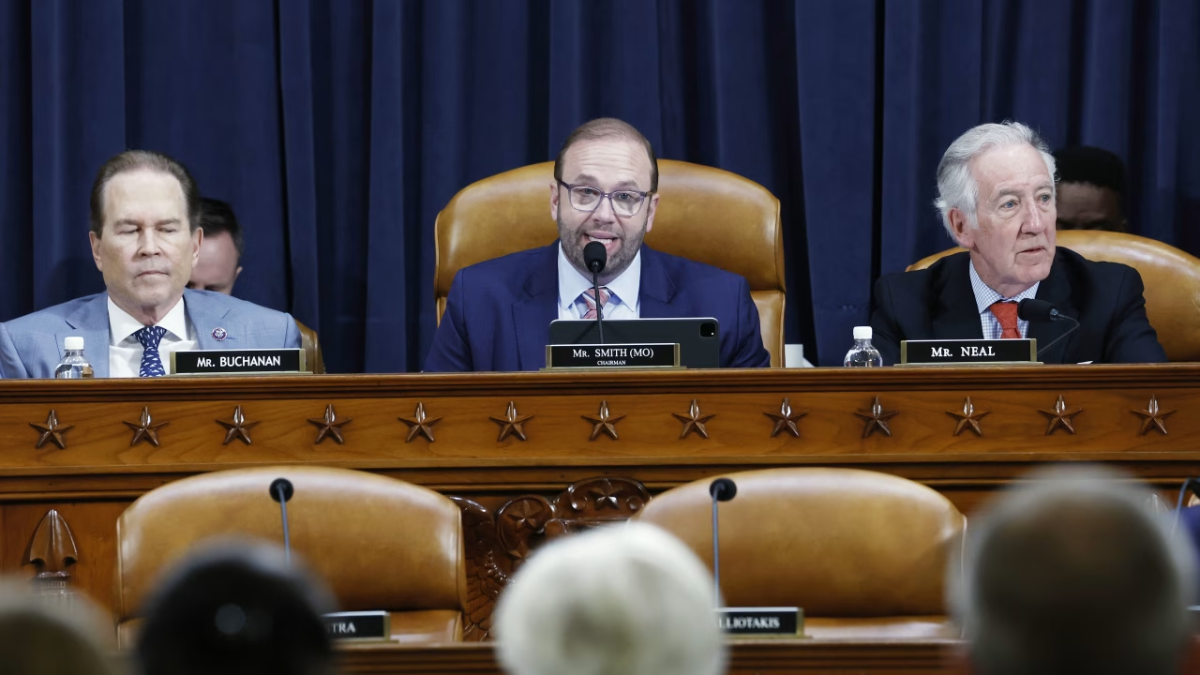Republican lawmakers have introduced a sweeping new tax proposal aimed at extending and expanding key provisions of the 2017 Tax Cuts and Jobs Act (TCJA). The new legislation, known as the Tax Relief for American Families and Workers Act of 2025, is designed to prevent several tax breaks from expiring at the end of 2025.
If passed, the bill could directly impact how much Americans pay in taxes, how families budget for childcare, and how small businesses manage their income.
With tax policy shaping the economy and household budgets alike, this proposal is being closely watched by economists, business leaders, and everyday taxpayers.
What’s in the GOP Tax Bill?
The Republican-backed bill includes a series of tax reforms that would continue and expand upon the TCJA. Key components of the bill include:
- Extension of Lower Individual Tax Rates: The 2017 TCJA lowered the individual income tax brackets, but these are set to expire in 2025. The new bill proposes to keep these lower brackets in place, preserving tax savings for millions of Americans.
- Standard Deduction Increase: The TCJA nearly doubled the standard deduction. The GOP plan would maintain these higher thresholds, allowing individuals and families to reduce taxable income more substantially.
- Child Tax Credit Stability: The bill preserves the Child Tax Credit at $2,000 per child and proposes to adjust it for inflation in future years, although it stops short of expanding refundability.
- Small Business Deductions: Pass-through businesses, including sole proprietorships, LLCs, and S-corporations, could continue claiming a 20% deduction on qualified income through an extension of Section 199A.
The bill’s sponsors argue that these tax policies will promote economic growth, ease the cost of living, and strengthen small businesses—especially as Americans continue to face inflationary pressures.
How Will It Affect Individuals and Families?
For most working Americans, the proposed extension of reduced tax brackets and a higher standard deduction could provide modest tax relief.
- Standard Deduction: In 2024, the IRS-set standard deduction stands at $13,850 for single filers and $27,700 for married couples filing jointly. The GOP bill would maintain these levels, allowing families to reduce their taxable income significantly without itemizing deductions.
- Child Tax Credit: Keeping the credit at $2,000 per qualifying child could help millions of parents. While Democrats have pushed for a more generous and fully refundable credit, the GOP proposal focuses on preserving the status quo with minor inflation adjustments.
- Rate Reductions: For a household making around $100,000, the continuation of lower income tax rates could mean savings of $1,000 to $1,400 annually, depending on deductions and family size.
These savings could help ease financial pressure on middle-income families as they navigate rising housing and childcare costs.
Support for Small Businesses
Another major component of the bill is its impact on small business owners. Under the TCJA, pass-through entities—such as partnerships and LLCs—received a 20% deduction on qualified business income. This provision is set to expire in 2025, but the new bill proposes to extend it indefinitely.
This could benefit:
- Independent contractors
- Freelancers
- Family-owned businesses
- Entrepreneurs using pass-through tax structures
By lowering their tax obligations, supporters believe this deduction helps stimulate job creation, increase reinvestment, and promote innovation in the private sector. However, critics warn it primarily benefits higher earners and contributes to a widening income gap.

Fiscal Concerns and Opposition
While Republicans frame the proposal as necessary tax relief for hardworking Americans and businesses, Democrats and budget analysts have voiced strong concerns.
According to the Congressional Budget Office (CBO), extending the TCJA provisions would cost over $3 trillion over the next decade, contributing significantly to the growing federal deficit.
The U.S. deficit is already projected to exceed $1.8 trillion in 2025, and critics argue the GOP bill lacks sufficient offsets to prevent worsening national debt.
Opponents also argue that the proposed bill does little for lower-income households. While the standard deduction helps reduce tax burdens, low earners who already pay little to no federal income tax would see minimal benefit.
Some Democratic lawmakers are calling instead for a fully refundable Child Tax Credit and stronger support for working-class families.
Will the Bill Pass?
The bill is expected to clear the House of Representatives, where Republicans currently hold a slim majority. However, its fate in the Senate is uncertain. Democrats are likely to demand significant changes, including increased support for lower-income households, before considering a compromise.
With many of the 2017 tax cuts set to expire in 2025, lawmakers on both sides of the aisle will face pressure to negotiate a broader tax reform package in the coming months.
Tax professionals recommend that individuals and business owners monitor the legislative process closely and prepare for potential changes in 2026 if no agreement is reached.
Conclusion
The Tax Relief for American Families and Workers Act of 2025 reflects a major push by the Republican Party to preserve and expand key tax cuts enacted under the Trump administration. While it offers potential savings for middle-income households and small business owners, concerns remain over its long-term cost and equitable impact.
As the debate unfolds in Congress, Americans should stay informed and consider consulting financial advisors to understand how upcoming tax reforms may affect their specific situations.
For more detailed information about the bill and official budget projections, visit the House Ways and Means Committee.
Disclaimer – Our team has carefully fact-checked this article to make sure it’s accurate and free from any misinformation. We’re dedicated to keeping our content honest and reliable for our readers.
